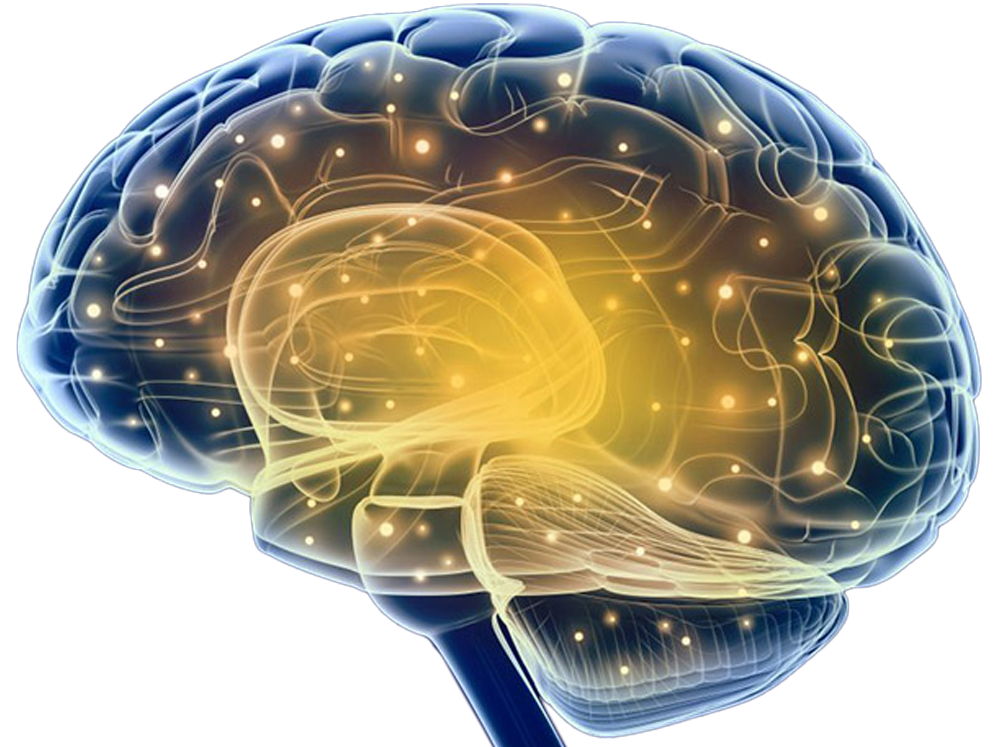Bioengineering in Psychiatry (BiP) Seminar Series
The Bioengineering in Psychiatry (BiP) Seminar Series provides opportunities for collaboration between pre-doc BioE students and faculty at both the Bioengineering and Psychiatry departments.
Past Seminars
Bioengineering in Psychiatry
Speaker Series presents
University of Pittsburgh
Department of Bioengineering
Swanson School of Engineering
Department of Psychiatry
School of Medicine


Prefrontal Circuits Bidirectionally Regulate Defensive Responding
by Joseph Stujenske, MD, PhD
Assistant Professor of Psychiatry
Defensive states are essential for avoidance of harm, but as seen across multiple psychiatric disorders, overgeneralized fear is maladaptive and impairing. I will describe how we have used electrophysiological and imaging modalities in mice to understand the prefrontal cortical circuits that adaptively promote or suppress defensive responses. I will also describe a downstream effector circuit for fear suppression in the basolateral amygdala engaged by prefrontal projections and introduce research priorities for my lab moving forward.
Feb. 2 at 10:00 AM

Bioengineering in Psychiatry
Speaker Series presents
University of Pittsburgh
Department of Bioengineering
Swanson School of Engineering
Department of Psychiatry
School of Medicine


Astrocyte Reactivity in Alzheimer’s Disease: A Biomarker Perspective
by Bruna Bellaver, PhD
Research Assistant Professor of Psychiatry
Alzheimer’s disease (AD) is characterized by the accumulation of amyloid and tau proteins in the brain. However, the heterogeneous progression of AD pathology and symptoms supports the presence of other biological factors that might be involved in the development of the disease. Postmortem and biomarkers studies show that astrocyte reactivity is a common finding in cognitively unimpaired individuals and, like cortical Aβ plaques, one of the earliest abnormalities in AD. In this talk, we will discuss (a) Astrocyte Biomarkers in AD, (b) the influence of astrocyte reactivity in the early stages of AD (c) the utility of astrocyte reactivity biomarkers for clinical trials, and (e) the biological interpretation of astrocyte reactivity biomarkers.
Feb. 9 at 10:00 AM

Bioengineering in Psychiatry
Speaker Series presents
University of Pittsburgh
Department of Bioengineering
Swanson School of Engineering
Department of Psychiatry
School of Medicine


3D Bioprinting of Collagen-based Microfluidics for Engineering Fully-biologic Tissue Systems
by Daniel Shiwarski, PhD
Assistant Professor of Bioengineering
Microfluidic and organ-on-a-chip devices have improved the physiologic and translational relevance of in vitro systems in applications ranging from disease modeling to drug discovery and pharmacology. However, current manufacturing approaches have limitations in terms of materials used, non-native mechanical properties, patterning of extracellular matrix (ECM) and cells in 3D, and remodeling by cells into more complex tissues. In this seminar I will highlight a method to 3D bioprint ECM and cells into microfluidic collagen-based high-resolution internally perfusable scaffolds (CHIPS). The CHIPS technology support cell migration and remodeling, formation of capillary-like networks, and integration of beta-like secretory cells to form a glucose-responsive, insulin-secreting pancreatic-like microphysiological system.
Feb. 23 at 10:00 AM

Bioengineering in Psychiatry
Speaker Series presents
University of Pittsburgh
Department of Bioengineering
Swanson School of Engineering
Department of Psychiatry
School of Medicine


Structural and Functional Measure of Brain Pathology in the First Year of Psychosis
by Dean Salisbury, PhD
Professor of Psychiatry
Psychosis is not due to a single brain lesion, but rather to widespread dysconnectivity within the brain. Still, this dysconnectivity is limited at the emergence of psychosis and spreads to the entire brain with disease course. The temporal lobes and the frontal lobes are the initial sites of pathology. I will present structural and functional measures of frontal-temporal dysconnectivity during the first year following first clinical contact for psychosis, including various MRI-derived measures, and EEG and MEG measures.
Mar. 1 at 10:00 AM

Bioengineering in Psychiatry
Speaker Series presents
University of Pittsburgh
Department of Bioengineering
Swanson School of Engineering
Department of Psychiatry
School of Medicine


Refining and identifying novel phenotypes with risk for alcohol problems
by Dr. Frances L. Wang, PhD
Assistant Professor, Department of Psychiatry
Dr. Wang will present her research to refine and identify novel phenotypes underlying alcohol use and problems. Much of this work has a special focus on developmentally salient, premorbid AUD-risk phenotypes. She conducts her research using multiple methods, from analyses of large scale genetically based datasets to mixed-methods study designs.
Mar. 8 at 10:00 AM

Bioengineering in Psychiatry
Speaker Series presents
University of Pittsburgh
Department of Bioengineering
Swanson School of Engineering
Department of Psychiatry
School of Medicine


Dissecting Antipsychotic Treatment with High-Field Multimodal Neuroimaging
by Deepak Sarpal, MD
Associate Professor of Psychiatry
Since their discovery over 7 decades ago, antipsychotic drugs have revolutionized psychiatric care with a vast evidence base for their ability to treat psychotic symptoms characteristic of schizophrenia spectrum disorders. However, to date, the neural and molecular contributions to antipsychotic treatment response remain largely unknown, highlighting a gap between our clinical practice and understanding of brain-based mechanisms. Here we will discuss an ongoing effort in the Department of Psychiatry to use high-field, 7-tesla neuroimaging to examine multimodal measures underlying treatment of early phase schizophrenia.
Mar. 22 at 10:00 AM

Bioengineering in Psychiatry
Speaker Series presents
University of Pittsburgh
Department of Bioengineering
Swanson School of Engineering
Department of Psychiatry
School of Medicine


Manipulating Sleep to Enhance Cognition
by Dr. Michelle Stepan, PhD
Assistant Professor, Department of Psychiatry
Sleep is necessary for optimal cognitive functioning, with slow-wave sleep specifically implicated in processes such as memory consolidation and executive function. In this talk, I will present research utilizing different methods to manipulate sleep (e.g., sleep deprivation, TMS, acoustic stimulation) and their effects on sleep architecture and cognition.
Mar. 29 at 10:00 AM

Bioengineering in Psychiatry
Speaker Series presents
University of Pittsburgh
Department of Bioengineering
Swanson School of Engineering
Department of Psychiatry
School of Medicine


Using tDCS to reduce conditioned responding to smoking and other disorder-related cues
by Cynthia Conklin, PhD
Associate Professor of Psychiatry
Stimuli repeatedly paired with drug-use can become conditioned stimuli, or cues, that trigger conditioned responses such as craving, mood changes, and immediate drug use. Decades of research with smokers demonstrates that exposure to proximal smoking cues (cigarettes, lighters, ashtrays) can evoke robust craving and subsequent smoking. More recently, it has become evident that distal cues (people and environments) repeatedly paired with smoking also become conditioned stimuli that can alone, in the absence of proximal smoking cues, evoke equally robust craving and initiation of smoking behavior. In fact, smokers report that encountering these cues while trying to quit and coping with the reactivity they evoke are key reasons that cessation is so challenging. Early methods to reduce this responding and aid cessation have largely mimicked extinction methods used in animal learning laboratories and have not proven successful. In this talk, Dr. Conklin will discuss where these past methods have fallen short and how the application of new technology / methodology, specifically transcranial direct current stimulation (tDCS) in combination with behavioral techniques like brief mindfulness and approach-avoidance tasks, are being used in her lab to develop new ways of reducing conditioned responding to smoking cues to better help smokers quit. Furthermore, she will discuss the utility of these methods to tackle conditioned aspects of other behavioral disorders.
Apr. 5 at 10:00 AM

Bioengineering in Psychiatry
Speaker Series presents
University of Pittsburgh
Department of Bioengineering
Swanson School of Engineering
Department of Psychiatry
School of Medicine


Novel Devices for Prolapse Repairs: Building from the Ground Up
by Katrina Knight, PhD
Assistant Professor of Bioengineering
Pelvic organ prolapse (prolapse) significantly impacts the quality-of-life of millions of women globally. Surgical repairs of prolapse often involve the use of synthetic mesh. This talk will highlight the interdisciplinary approach used to define the problems associated with synthetic meshes and to elucidate mechanisms of mesh complications. Secondly, I will demonstrate how we are using our understanding of mesh complications to develop a novel device tailored for prolapse repair. Ultimately, it is our goal that this research will lead to a product(s) that will benefit millions of women impacted with prolapse world-wide.
Apr. 12 at 10:00 AM

Bioengineering in Psychiatry
Speaker Series presents
University of Pittsburgh
Department of Bioengineering
Swanson School of Engineering
Department of Psychiatry
School of Medicine


Modelling Excitation-Inhibition Balance using Connectomics
by Liang Zhan, PhD
Associate Professor of Bioengineering
The brain's criticality hypothesis suggests that its dynamics naturally organize into a critical state, finely balancing excitatory and inhibitory interactions for optimal adaptivity. Recent studies propose that Alzheimer's disease (AD) may initially manifest as synaptic hyperexcitation resulting from the loss of inhibitory interneurons in the hippocampus. In my presentation, I will delve into our team's approach to quantifying Excitation-Inhibition (E/I) balance using human neuroimaging data. Specifically, I'll detail our utilization of a mixed-spin Ising model, which combines resting-state functional and diffusion-weighted MR imaging to infer E/I balance at the connectome level. Moreover, I'll discuss noteworthy discoveries shedding light on sex-based disparities in AD. Notably, research, including our own, suggests that female carriers of the APOE-ε4 allele exhibit heightened hyperexcitation, even in the absence of cognitive decline.
Apr. 19 at 10:00 AM

Bioengineering in Psychiatry
Speaker Series presents
University of Pittsburgh
Department of Bioengineering
Swanson School of Engineering
Department of Psychiatry
School of Medicine


Anesthetic Neuroscience: Modulation of Pain, Consciousness and Memory
by Keith Vogt, MD, PhD
Assistant Professor of Anesthesiology & Perioperative Medicine and Bioengineering
This talk will describe how anesthetics achieve their unique effects on different aspects of cognition. We will begin with a review of how pain is processed in the brain, how anesthetics act to interrupt consciousness, and impair memory. The second portion of the talk will describe in detail ongoing work in the Anesthesiology Neuroscience Research program here at Pitt, which is focused on characterizing how diverse anesthetic agents interact to affect memory and cognition during painful experiences.
Feb. 10 at 10:00 AM

Bioengineering in Psychiatry
Speaker Series presents
University of Pittsburgh
Department of Bioengineering
Swanson School of Engineering
Department of Psychiatry
School of Medicine


Neuroimaging markers for the role of dopamine in the development of reward learning
by Finnegan Calabro, PhD
Research Assistant Professor of Psychiatry and Bioengineering
Adolescence is a period of heightened reward sensitivity, thought to be driven by the development of striatal dopamine (DA) systems, and underlying changes in reward learning strategies. However, characterization of these mechanisms has been hampered by limitations in the ability to assess DA in vivo. Here, we leverage both direct (PET) and indirect (MR-based) measures to demonstrate how maturation of DA signaling pathways contributes to the development of reward learning strategies through adolescence.
Feb. 24 at 10:00 AM

Bioengineering in Psychiatry
Speaker Series presents
University of Pittsburgh
Department of Bioengineering
Swanson School of Engineering
Department of Psychiatry
School of Medicine


Cortical Mechanisms of Human Voice Perception
by Taylor Abel, MD
Associate Professor of Neurological Surgery
Humans rapidly extract a wealth of information from voice including a speaker's gender, age, size, and mood. Humans are incredibly efficient at these tasks, yet much remains unknown about how the human cerebral cortex performs voice recognition. We will discuss human intracranial recording experiments that elucidate the neural representation of voice in specialized voice regions of human auditory cortex.
Mar. 3 at 10:00 AM

Bioengineering in Psychiatry
Speaker Series presents
University of Pittsburgh
Department of Bioengineering
Swanson School of Engineering
Department of Psychiatry
School of Medicine


Neural network markers of mood disorder risk to guide neuromodulation: multimodal approaches across development
by Mary Phillips, MD
Distinguished Professor of Psychiatry, Clinical and Translational Science, and Bioengineering
Dr. Phillips' research employs multimodal imaging, and novel computational and translational approaches to yield neural biomarkers relating to diagnosis of mood disorders, early identification of mood disorder risk and treatment of these disorders in youth and adults. Her work has identified abnormalities in prefrontal-striatal reward circuitry that are specific to bipolar disorder, to aid more accurate and rapid diagnosis, and identify youth who are at future risk of, the disorder. She is now determining how neural biomarkers can be focally targeted by theta burst stimulation, to develop more effective treatments for bipolar and related disorders. Her recent work also examines how the development in infancy of largescale neural networks underlying key processes relevant to affective pathology underlies the development of dimensions of emotional reactivity that predispose to future mental health problems later in childhood and adolescence. Her work promotes neuroscience focus to the study of mood disorders and new treatment developments, to guide the precision medicine agenda in psychiatry.
Mar. 17 at 10:00 AM

Bioengineering in Psychiatry
Speaker Series presents
University of Pittsburgh
Department of Bioengineering
Swanson School of Engineering
Department of Psychiatry
School of Medicine


Exploring Tissue Microstructure through Advanced Diffusion MRI Methods
by Tales Santini, PhD
Research Assistant Professor of Bioengineering
Diffusion MRI (dMRI) is a type of MRI technique that allows the examination of tissue microstructures. The commonly utilized MRI sequence, known as pulsed gradient spin echo or PGSE, was initially proposed by Stejskal and Tanner in 1965. Although it is a reliable method, it has certain constraints. The most significant limitation is its inability to differentiate various microstructural features, which results in different microstructures appearing identical in the diffusion- weighted MRI signal. In this presentation, we will focus on advanced techniques that go beyond PGSE in clinical applications. Specifically, we will explore approaches that allow for the mapping of microscopic anisotropy and diffusion time, which provide extra information to detect tissue abnormalities at the cellular level.
Mar. 24 at 10:00 AM

Bioengineering in Psychiatry
Speaker Series presents
University of Pittsburgh
Department of Bioengineering
Swanson School of Engineering
Department of Psychiatry
School of Medicine


Advances in real-time fMRI neurofeedback for psychiatric disorders
by Kymberly Young, PhD
Associate Professor of Psychiatry
Real-time fMRI neurofeedback allows participants to see hemodynamic activity in a localized brain region or network and learn to control it through various behavioral strategies. This technique has shown promise for treating a wide range of neurological and psychiatric disorders. In this lecture, Dr. Young will discuss the current state of neurofeedback interventions for psychiatric disorders, with a particular focus on her amygdala neurofeedback intervention for major depressive disorder.
Mar. 24 at 10:00 AM

Bioengineering in Psychiatry
Speaker Series presents
University of Pittsburgh
Department of Bioengineering
Swanson School of Engineering
Department of Psychiatry
School of Medicine


Advances in 7T Vascular Neuroimaging Highlight an SVD- related AD Risk in Women
by Minjie Wu, PhD
Assistant Professor of Psychiatry
Mixed pathologies of cerebral small vessel disease (SVD) and Alzheimer's disease (AD) represent the most common cause of dementia in the elderly population. Co-occurring SVD has been shown to have synergistic effects on the brain and on cognitive decline. In this talk, Dr. Wu will present recent technical development in characterizing small vessel disease using 7T vascular imaging and applying these innovative methods to investigate the heightened SVD-related AD risk in women.
Apr. 14 at 10:00 AM

Bioengineering in Psychiatry
Speaker Series presents
University of Pittsburgh
Department of Bioengineering
Swanson School of Engineering
Department of Psychiatry
School of Medicine


Deep Brain Stimulation for Alcohol Use Disorder
by Khaled Moussawi, MD, PhD
Assistant Professor of Psychiatry, Neurology, and Bioengineering
This seminar will be about a current project we are conducting in which we use Limbic Pallidum Deep Brain Stimulation (DBS) for the treatment of severe and refractory alcohol use disorder. We only have one subject enrolled so far, but we have identified some Bioengineering needs in our research that would be interesting to discuss and get feedback from the Bioengineering community.
Apr. 21 at 10:00 AM

Bioengineering in Psychiatry
Speaker Series presents
University of Pittsburgh
Department of Bioengineering
Swanson School of Engineering
Department of Psychiatry
School of Medicine


Sleep, Circadian Rhythms, and Risk for Alzheimer's Disease: Implications for Retired Night Shift Workers
by H. Matthew Lehrer, PhD
Assistant Professor of Psychiatry
Night shift work is common in the current 24-hour global society and is increasingly recognized as a risk factor for Alzheimer's Disease (AD) and related dementias (ADRD). However, we know very little about the persistence, recovery from, or pathways through which shift work contributes to AD/ADRD. I will present data comparing retired night shift workers to retired day workers on indices of sleep, circadian rhythms, cognitive function, and AD blood biomarkers. I will also share the protocol of an ongoing study characterizing brain volume and brain bioenergetics in retired night shift workers.
Sep. 8 at 10:00 AM

Bioengineering in Psychiatry
Speaker Series presents
University of Pittsburgh
Department of Bioengineering
Swanson School of Engineering
Department of Psychiatry
School of Medicine


From Nuclear Reactors to the Brain: An Engineer's Journey
by Andrew Gerlach, PhD
Assistant Professor of Psychiatry
What do nuclear reactors and the brain have in common? Not much, it turns out! Except both require a wide array of technical tools to analyze and understand. I'll be describing my journey from nuclear engineer to psychiatric researcher and highlighting the need for technical expertise in the field using my previous and future work in late-life depression and anxiety as illustrations.
Sep. 15 at 10:00 AM

Bioengineering in Psychiatry
Speaker Series presents
University of Pittsburgh
Department of Bioengineering
Swanson School of Engineering
Department of Psychiatry
School of Medicine


Cognitive processes contribute to human locomotor learning in older adults without cognitive disorders.
by Gelsy Torres, PhD
Associate Professor of Bioengineering
Locomotor learning is the animal's ability to encode and retrieve context-specific motor memories according to the context at hand. For example, one acquires a specific gait for icy surfaces and recalls it for future encounters with ice. Locomotor learning has been considered a process governed by spinal and subcortical circuits. In this talk, we will discuss the potential contribution of cognitive processes to locomotor learning in older adults using a behavioral approach. A common assessment of cognitive contributions to walking involves examining prefrontal activation using near-infrared spectroscopy (fNIRS) during dual-task (DT) paradigms, such as walking while performing a cognitive task. However, neither PFC activity nor task performance in isolation can provide an accurate indicator of cognitive contributions to gait. For instance, increased PFC activity in the DT task may signify either enhanced or reduced cognitive contribution to walking, depending on whether participants perform well or poorly in the DT task. Thus, we developed a novel metric that combines measures of performance and PFC recordings during DT tasks for a better assessment of cognitive contributions to gait. We validated our metric using data from 173. participants (≥65 y/o) who completed DTS with two levels of difficulty while PFC activity was recorded with fNIRS. The two DT tasks consisted of reciting every other letter of the alphabet while walking over either an even or uneven surface. We found that as DT difficulty increases, more participants showed greater cognitive contributions to walking as measured by the cognitive gait index compared to the same analysis using PFC activity alone. Furthermore, when comparing across individuals, lower cognitive function related to a greater need for cognitive contributions to gait, but neither PFC nor DT performance was sensitive to this association. Lastly, we measured locomotor learning in a subgroup of participants (n=22) and found that those who have greater cognitive contributions to walking in the DT tasks also exhibited better locomotor learning, which suggests a greater engagement of cognitive resources in locomotor learning of older adults than previously considered. This greater engagement of cognitive resources in locomotor learning may indicate cognitive compensation in older populations. Taken together, our results open an exciting opportunity to investigate the relationship between the health of subcortical networks and cognitive compensation in clinical populations.
Sep. 22 at 10:00 AM

Bioengineering in Psychiatry
Speaker Series presents
University of Pittsburgh
Department of Bioengineering
Swanson School of Engineering
Department of Psychiatry
School of Medicine


Using Multimodal Neuroimaging Methodologies to Understand Brain Maturation from Adolescence Through Adulthood
by Ashley Parr, PhD
Research Instructor in Psychiatry
Dynamic neurobiological changes accompany the transition from adolescence to adulthood, occurring across multiple brain systems ranging from circuit-level to the cellular level. Capturing maturational changes across these systems requires longitudinal neuroimaging methodologies and analytical techniques. I will describe a set of research studies through which we have employed an array of neuroimaging techniques, including issue iron neuroimaging, magnetic resonance spectroscopic imaging (MRSI), and functional magnetic resonance imaging (fMRI) to understand dynamic changes in the brain that support the transition from adolescence to adulthood.
Sep. 29 at 10:00 AM

Bioengineering in Psychiatry
Speaker Series presents
University of Pittsburgh
Department of Bioengineering
Swanson School of Engineering
Department of Psychiatry
School of Medicine


A novel mesoscopic electrophysiology platform reveals the effects of ketamine and midazolam on large-scale functional connectivity networks in the monkey brain
by Tobias Teichert, PhD
Associate Professor of Psychiatry
The ability of fMRI to record activity from the entire brain in parallel has revealed the existence of distributed brain-wide functional networks. While the functional relevance and the spatial specificity of these networks has been described in great detail, their temporal and/or spectral features have remained largely unexplored, at least in part due to the relatively slow temporal dynamics of the hemodynamic response. To better understand the temporal properties of these brain-wide functional networks, we developed the first electrophysiological recording platform with an entire hemisphere as its field of view. This regular 3-dimensional grid of 1024 electrodes allows us to record brain-wide functional networks with unprecedented temporal resolution. Among many other novel insights, this approach revealed a spectrally and spatially highly specific 13 Hz cerebellar network that is abolished by subanesthetic doses of ketamine and midazolam.
Oct. 13 at 10:00 AM

Bioengineering in Psychiatry
Speaker Series presents
University of Pittsburgh
Department of Bioengineering
Swanson School of Engineering
Department of Psychiatry
School of Medicine


Cortical Myelin in Depressive Disorders
by Anna Manelis, PhD
Assistant Professor of Psychiatry
The association between depressive disorders and measures reflecting cortical myelin content is underexplored. Recently, we showed that the levels of cortical myelin can accurately distinguish participants with depressive disorders from healthy controls even when clinical and demographic variables are not included in analyses. Contrary to previous studies, we found that affected individuals had both reduced and elevated levels of cortical myelin in reward, emotion, and sensory processing regions (often in the adjoined areas). This finding suggests that depression is characterized by cortical myelin imbalance, rather than a uniform reduction in myelin content and that cortical myelin holds promise as a biomarker of depressive disorders.
Oct. 27 at 10:00 AM

Bioengineering in Psychiatry
Speaker Series presents
University of Pittsburgh
Department of Bioengineering
Swanson School of Engineering
Department of Psychiatry
School of Medicine


Neural representation of sensation, action, and sensorimotor transformation during visually guided eye movements
by Neeraj Gandhi, PhD
Professor of Bioengineering
Interactions with the environment requires the ability to sense objects that appear in our world and then execute the appropriate movement at the correct time. For visually guided eye movements, the same population of neurons in numerous brain structures are active during both sensation and action, yet the sensory signal does not produce a movement. We used population level analysis to understand how these two signals are differentially represented in the same group of neurons and to characterize the transition between them.
Nov. 3 at 10:00 AM

Bioengineering in Psychiatry
Speaker Series presents
University of Pittsburgh
Department of Bioengineering
Swanson School of Engineering
Department of Psychiatry
School of Medicine


Psyche & Syntax: Beyond Boundaries – Embracing a Transdisciplinary Paradigm in Cognitive Psychiatry
by Akiko Mizuno, PhD
Research Instructor in Psychiatry
In this talk, I will present my transdisciplinary work that transcends the traditional interdisciplinary integration of bioengineering/computer science and psychiatry. Unlike interdisciplinary work, which combines distinct disciplinary perspectives, my transdisciplinary method dissolves boundaries to forge entirely new frameworks for understanding the mind and mental health.
My research leverages computational approaches within a clinical context to yield innovative insights into psychiatric disorders, including mood disorders and dementia. This method does not merely combine knowledge from different fields—it redefines those fields in pursuit of shared objectives and responses to common challenges. In my talk, I will describe my cognitive psychology approach: 1) for detecting the earliest signs of cognitive decline through an understanding of metacognitive processes, and 2) for comprehending the implicit processes that underlie deficits in the reward system in depression and pervasive human biases (e.g., racism).
Nov. 10 at 10:00 AM

Bioengineering in Psychiatry
Speaker Series presents
University of Pittsburgh
Department of Bioengineering
Swanson School of Engineering
Department of Psychiatry
School of Medicine


Diversity of Hemodynamic Responses in the Awake Brain: Is There a Path to Infer Inhibition from Imaging Data?
by Alberto Vazquez, PhD
Associate Professor of Radiology and Bioengineering
Hemodynamic responses are routinely used to infer brain activity from imaging data like functional magnetic resonance imaging (fMRI). The mammalian brain is composed millions of neurons that can be generally categorized as excitatory or inhibitory. Recent experiments from our group and others show that excitatory and inhibitory neuron activity elicit slightly different hemodynamic responses, suggesting that these can be used to infer excitation and inhibition. In this talk, I will present imaging data from awake rodents where neuronal activity from excitatory and inhibitory neurons can be imaged simultaneously with hemodynamic data, and our efforts to examine excitation and inhibition from imaging data.
Dec. 1 at 10:00 AM

Bioengineering in Psychiatry
Speaker Series presents
University of Pittsburgh
Department of Bioengineering
Swanson School of Engineering
Department of Psychiatry
School of Medicine


The Role of Puberty on Fronto-Limbic Circuitry: Implications for Understanding Sex Differences in Affective Disorders
by Cecile Ladouceur, PhD
Professor of Psychiatry and Psychology
Dr. Ladouceur is Professor in the Department of Psychiatry and Psychology, and a member of the training faculty in the Center for Neuroscience at the University of Pittsburgh. She is Director of the Cognitive-Affective Neuroscience and Development (CAN-D) Laboratory. Her research program–funded by the BBRF, NIMH, and CTSI–focuses on understanding the development of brain networks implicated in emotion processing and regulation in typically developing youth as well as those at-risk for or diagnosed with anxiety or mood disorders, with a particular focus on puberty. She is a Fellow of the Association for Psychological Science and a member of the American College of Neuropsychopharmacology and the BBRF Scientific Council.
Her talk will focus on the neurodevelopmental and social factors that could contribute to heightened risk of anxiety and depression during adolescence. It will also include discussion of her recent work examining the role of pubertal maturation and pubertal hormones on the functioning of neural circuitries implicated in processing affectively salient information and how these effects could help explain sex differences in the rate of affective disorders during adolescence and how the onset of puberty could represent key developmental window for effective treatment.
Dec. 8 at 10:00 AM

Bioengineering in Psychiatry
Speaker Series presents
University of Pittsburgh
Department of Bioengineering
Swanson School of Engineering
Department of Psychiatry
School of Medicine


Sex-specific trajectories of Alzheimer's Disease
by Bistra lordanova, PhD
Assistant Professor of Bioengineering
Alzheimer's disease is the main dementia afflicting 5.8 million Americans and nearly two-thirds are women. Recent evidence shows diverging sex-specific trajectories of dementias, particularly after menopause, but the biological basis remains elusive. This lecture will deliver an integrative view on dynamic neurovascular coupling and brain metabolism in humans and animal models during aging. The central hypothesis is that vascular and metabolic dysfunctions interact with neuroendocrine regulators to drive brain pathology in a sex- specific manner. I will also introduce our multidisciplinary approach that combines MRI with optics and single-cell transcriptomics to relate functional aspects of neurovascular resilience to specific cell types and design personalized therapy.
Feb. 11 at 10:00 AM

Bioengineering in Psychiatry
Speaker Series presents
University of Pittsburgh
Department of Bioengineering
Swanson School of Engineering
Department of Psychiatry
School of Medicine


Clinical Cases in Geriatric Psychiatry
by Ariel Gildengers, MD
Associate Professor of Psychiatry
Dr. Ari Gildengers will review older adult patients from the Benedum Geriatrics Center. The cases will cover mood, anxiety, psychotic, and neurocognitive disorders and various treatment modalities. He will present patients highlighting the long-term course of mental illness as well as patients who develop mental illness in older age. Additionally, Dr. Gildengers will review the environment of care and community resources. Discussion of each case will be encouraged.
Feb. 25 at 10:00 AM

Bioengineering in Psychiatry
Speaker Series presents
University of Pittsburgh
Department of Bioengineering
Swanson School of Engineering
Department of Psychiatry
School of Medicine


Neuroimaging predictors of opioid modulation of antidepressant placebo effects
by Marta Peciña, MD, PhD
Assistant Professor of Psychiatry
Placebo effects represent an excellent opportunity to investigate the biological mechanism implicated in the processing of positive expectancies, associative learning, and social interactions. In this talk, I will describe the neural and molecular correlates through which placebos may impact mood, fatigue, or anxiety. In particular, I will show data that demonstrate the contribution of the opioid system in antidepressant lace effects and contextual processing.
Mar. 4 at 10:00 AM

Bioengineering in Psychiatry
Speaker Series presents
University of Pittsburgh
Department of Bioengineering
Swanson School of Engineering
Department of Psychiatry
School of Medicine


Pathological Learning and Memory as a Core Feature of Substance Use Disorders and a Path Towards Novel Treatment
by Mary Torregrossa, PhD
Associate Professor of Psychiatry
In this talk I will describe studies in my lab that have identified the circuits and cellular mechanisms responsible for encoding associative memories between environmental stimuli and cocaine use. I will describe how plasticity at synapses from the thalamus to the amygdala are strengthened during cocaine self-administration and how they can be weakened through the process of extinction learning or by using specific stimulation techniques. I will further discuss a potential role for dopamine in modifying cocaine-associated learning and how cocaine self- administration paradigms that promote habitual cocaine use patterns lead to a loss of amygdala control over cocaine seeking behavior. Overall, these studies provide insight into the circuits and mechanisms controlling drug use under different conditions and give insight into ways to use neurostimulation technology to target drug memories for the prevention of relapse in substance use disorders.
Mar. 18 at 10:00 AM

Bioengineering in Psychiatry
Speaker Series presents
University of Pittsburgh
Department of Bioengineering
Swanson School of Engineering
Department of Psychiatry
School of Medicine


Cutting edge in Psychiatry - helping or hurting?
by Carmen Andreescu, MD
Associate Professor of Psychiatry
Advanced imaging and Al techniques have been hailed as opening a new era in Psychiatry, with breakthroughs in diagnosis and treatment prediction. This talk with review the diagnostic and pharmacotherapeutic background on which imaging and Al are applied, will describe the challenges and limitations of translating data into clinical meaningful results, and will propose directions through which Bioengineering may help to close the gap between research and clinical practice in Psychiatry.

Bioengineering in Psychiatry
Speaker Series presents
University of Pittsburgh
Department of Bioengineering
Swanson School of Engineering
Department of Psychiatry
School of Medicine


Underlying Mechanisms of Balance and Gait Impairments A Focus on Special Populations: Low Vision and Autism
by Rakie Cham, PhD
Associate Professor of Bioengineering, Ophthalmology, Physical Therapy
Falls are a growing public and occupational health concern, particularly in special populations such as older adults and individuals affected by a physical, central or cognitive disability. Causes of falls are multifactorial and complex. Multidimensional approaches are needed to understand the problem of balance and gait impairments and how they impact an individual's quality of life. Such approaches are also needed to develop effective patient-centered interventions. In this presentation, I will first provide a description of our Human Movement and Balance Laboratory (HMBL) facilities. Then I will focus on our findings in this area in two clinical populations: adults with low vision conditions and adults with autism spectrum disorders.

Bioengineering in Psychiatry
Speaker Series presents
University of Pittsburgh
Department of Bioengineering
Swanson School of Engineering
Department of Psychiatry
School of Medicine


Menopause and Its Symptoms: Implications for Cardiovascular and Brain Health
by Rebecca Thurston, PhD
Professor of Psychiatry, Clinical and Translational Science, Epidemiology, and Psychology
The menopause transition is universal midlife transition among women that is commonly accompanied by changes in sex steroid hormones and the occurrence of symptoms such as hot flashes and sleep problems. Midlife and the menopause transition is also a critical time for cardiovascular and brain health that can set the stage for the occurrence of events such as heart attacks, strokes, and dementia later in life. This talk will discuss the menopause transition and its implications for women's cardiovascular and brain health as they age.

Bioengineering in Psychiatry
Speaker Series presents
University of Pittsburgh
Department of Bioengineering
Swanson School of Engineering
Department of Psychiatry
School of Medicine


Autism and Emotion Dysregulation: The Complexity, Variability, and Potential to Improve Quality of Life
by Carla Mazefsky, PhD
Professor of Psychiatry, Psychology, and Clinical and Translational Science
This talk will provide an overview of key studies and findings from the Regulation of Emotion in Autistic Children, Teens, and Adults (REAACT) research program at the University of Pittsburgh Department of Psychiatry. Attention will be paid to heterogeneity in emotion dysregulation in austistic individuals and its associated impact on mental health and behavior. Illustrative examples of the potential for engineering to inform autism research will be provided.

Bioengineering in Psychiatry
Speaker Series presents
University of Pittsburgh
Department of Bioengineering
Swanson School of Engineering
Department of Psychiatry
School of Medicine


Mood Matters: Major Depression, Late-Life Cognitive Impairment and Dementia Risk
by Meryl Butters, PhD
Professor of Psychiatry and Clinical and Translational Science
This presentation will cover (1) a review of the literature showing that depression at any age, but especially in later-life, increases one's risk of developing progressive dementia; (2) a unifying neurobiological framework comprised of multiple pathways linking depression to cognitive impairment and various long-term outcomes; and (3) several exciting, recent intervention studies aimed at preventing depression-associated cognitive decline.

Bioengineering in Psychiatry
Speaker Series presents
University of Pittsburgh
Department of Bioengineering
Swanson School of Engineering
Department of Psychiatry
School of Medicine


Opening a new window into the cell via situ cryo-electron tomography
by Zachary Freyberg, MD, PhD
Associate Professor of Psychiatry and Assistant Professor of Cell Biology
A revolution is occurring in microscopy. Breakthroughs in cryo-electron tomography (cryo-ET) have enabled the three-dimensional visualization of cells and the structures within at unprecedented resolution and in their native contexts. Using cryo-ET in secretory cells, we have discovered a new organelle a novel, highly dynamic vesicular form of the endoplasmic reticulum (ER) that we termed Ribosome-Associated Vesicles (RAVS). RAVS are conserved across multiple cell types and species. These organelles carry actively translating ribosomes to local sites and interact with mitochondria via direct membrane contacts, shedding light on the means by which ER and its subcompartments communicate with other organelles. In parallel, we have applied cryo-ET to the visualization of disease processes directly in the cells of patients. In situ cryo-ET approaches therefore open the door to fundamental discoveries in cell biology and their translation to human disease.

Bioengineering in Psychiatry
Speaker Series presents
University of Pittsburgh
Department of Bioengineering
Swanson School of Engineering
Department of Psychiatry
School of Medicine


Spinal cord stimulation to restore sensation and reduce phantom limb pain after limb amputation
by Lee Fisher, PhD
Associate Professor of Physical Medicine, Rehabilitation, and Bioengineering
Despite important advances in the design of prosthetic devices, loss of a limb causes major challenges that often limit participation in activities of daily living. For people with upper-limb amputation, prosthetic adoption rates remain poor and device control is often unintuitive. Those with lower-limb amputation experience impaired balance control, abnormal gait, and an increased rate of falls. Across both groups, upwards of 85% of people also experience debilitating phantom limb pain. All these problems can be attributed, in part, to the loss of sensory feedback from the limb after amputation. this talk, I will present our research efforts focused on development of devices to stimulate the spinal cord to restore sensory feedback in people with limb amputation. Using devices that are currently implanted in over 50,000 people every year to treat chronic pain, we have demonstrated that spinal cord stimulation can evoke sensations in the missing limb to improve control of prosthetic limbs and reduce phantom limb pain in people with both upper- and lower-limb amputation.

Bioengineering in Psychiatry
Speaker Series presents
University of Pittsburgh
Department of Bioengineering
Swanson School of Engineering
Department of Psychiatry
School of Medicine


Slow-wave sleep enhancement and cognition in older adults: Future directions for Alzheimer's disease
by Kristine Wilckens, PhD
Assistant Professor of Psychiatry
There is growing evidence for the involvement of sleep in the progression of Alzheimer's disease and cognitive disorders. The current talk will describe approaches we are taking to enhance sleep architecture to promote brain health and cognitive fitness. Dr. Wilckens will present data from a pilot study that uses transcranial magnetic stimulation to enhance sleep architecture as well as ongoing technique development to examine brain fluid dynamics during sleep, which may enhance our understanding about the role of sleep in clearance of neurotoxic waste.
Nov. 7 at 10:00 AM

Bioengineering in Psychiatry
Speaker Series presents
University of Pittsburgh
Department of Bioengineering
Swanson School of Engineering
Department of Psychiatry
School of Medicine


Biomaterials Strategies Towards Seamless Neural Tissue-Device Interface
by Tracy Cui, PhD
Professor of Bioengineering
Microelectronic devices, placed in the nervous system to record and modulate neuroactivity or detect neurochemicals, present tremendous potentials for understanding neural circuits and treating neurological diseases. Currently, the performance of these devices is sub-optimum due to material limitations and undesired host tissue responses. We use several biomaterial strategies to minimize these failure modes. First, conducting polymer-based nanocomposites have been investigated as electrode coatings to facilitate the signal transduction between the ionically conductive tissue and the electronic device. We employ nanotechnology to improve the stability, charge injection and drug delivery capability of the conducting polymers to meet the material challenges. Secondly, materials and devices that mimic the mechanical properties of the neural tissue have been developed and shown to significantly reduce the chronic inflammation. Thirdly biomimetic surface modifications and drug delivery have been applied to actively modulate the cellular responses. The ultimate solution to a seamless device/tissue interface may be a combinatorial approach that takes advantage of multiple strategies discussed above and beyond.
Nov. 18 at 10:00 AM

Bioengineering in Psychiatry
Speaker Series presents
University of Pittsburgh
Department of Bioengineering
Swanson School of Engineering
Department of Psychiatry
School of Medicine


Neuromodulation and Non-neuronal modulation to restore excitatory/inhibitory balance
by Takashi Kozai, PhD
Associate Professor of Bioengineering
Many neurological diseases and brain injuries lead to an imbalance in excitatory/inhibitory neural activity. This can be observed as dramatic alterations in excitatory and inhibitory neuronal activity in many brain regions. However, a growing body of research shows that non-neuronal cells such as microglia, astrocytes, oligodendrocytes, and pericytes play crucial roles in maintaining this excitation/inhibition balance. Our lab explores understanding how these different neuronal and non-neuronal cells contribute to neural excitation/inhibition balance as well as how we can treat these imbalances through neuromodulation including electrical stimulation, ultrasound stimulation, and pharmaceuticals.
Dec. 9 at 10:00 AM

Bioengineering in Psychiatry
Speaker Series presents
University of Pittsburgh
Department of Bioengineering
Swanson School of Engineering
Department of Psychiatry
School of Medicine


Mapping the neural circuitry basis for cognitive dysfunction in schizophrenia
by David Lewis, MD
Distinguished Professor of Psychiatry and Neuroscience, Thomas Detre ; Professor of Academic Psychiatry, Chair, Department of Psychiatry
Deficits in cognitive control, the ability to adjust thoughts or behaviors in order to achieve goals, are now considered to be a core feature of schizophrenia and to be the best predictor of long-term functional outcome. Cognitive control depends on the coordinated activity of several brain regions, including the dorsolateral prefrontal cortex (DLPFC). Subjects with schizophrenia exhibit altered activation of the DLPFC, and reduced power of frontal lobe gamma band (-40 Hz) oscillations, when performing tasks that require cognitive control. Gamma oscillations require robust activity in the reciprocal connections between the parvalbumin-containing basket cell class of cortical GABA neurons and neighboring pyramidal neurons. Thus, alterations in either the excitatory or inhibitory synapses in this circuit could contribute to impaired gamma oscillations and cognition in schizophrenia. This presentation will review the evidence for alterations in components of this circuit in the DLPFC of subjects with schizophrenia. Current findings converge on the hypothesis that the primary disturbances are in pyramidal neurons with the changes in parvalbumin neurons representing compensatory responses to maintain excitatory-inhibitory balance in DLPFC networks. In concert, the findings provide a circuity-based explanation for gamma oscillations impairments and cognitive disturbances in schizophrenia.
Dr. Lewis is an internationally recognized expert on schizophrenia. His research focuses on the neural circuitry of the prefrontal cortex and related brain regions and the alterations of this circuitry in schizophrenia.
Mar. 29 at 12:00 PM

Bioengineering in Psychiatry
Speaker Series presents
University of Pittsburgh
Department of Bioengineering
Swanson School of Engineering
Department of Psychiatry
School of Medicine


Translational studies of circadian rhythms and psychiatry
by Colleen McClung, PhD
Professor of Psychiatry and Clinical and Translational Science
The overall goal of our work is to understand the mechanisms that lead to psychiatric disorders with a particular interest in the role of the circadian clock in the manifestation and treatment of these disorders. I'll discuss our translational work in mice, rats and humans with a focus on how we use brain imaging and molecular data from human subjects to inform mechanistic studies in rodents (and vice versa). The hope is that these types of cross species studies will lead to the development of novel treatments for diseases like bipolar disorder and substance use disorders.
Dr. McClung is world leader in the study of how circadian genes and rhythms are involved in the development of substance abuse disorders. Her research has identified direct molecular mechanisms by which circadian proteins in cortico-limbic circuitry regulate neuronal activity and substance use-related behavior.
May. 3 at 12:00 PM

Bioengineering in Psychiatry
Speaker Series presents
University of Pittsburgh
Department of Bioengineering
Swanson School of Engineering
Department of Psychiatry
School of Medicine


Unveiling and Targeting Neurocognitive Profiles in Anxiety and Depression: Towards Neuroplasticity-Based Intervention
by Rebecca Price, PhD
Associate Professor of Psychiatry and Psychology
Neural and cognitive processing pattems have been found to distinguish groups of individuals with emotional disorders (eg, anxiety, depression from healthy samples, but translating such findings Into true advances in clinical care remains a challenge. Research in psychiatry increasingly emphasizes cross-cutting biopsychosocial factors that are heterogeneous within, and across, discrete psychiatric diagnoses. The promise of this work is that It will generate a process-based framework to improve psychiatric assessment and treatment. In this talk, I w discuss neurocognitive factos that may contbute to anxiety and depression across diagnoses with a focus on Impairments in cognitive flexbility and neuroplastidity. I will discuss ongoing attempts to translate such findings Into mechanistic treatment straegles and personalized treatment prescriptions cæable of remediating neurocognitive disruptions and allevaing symptoms. Specific areas of focus within this work include: 1) characterizing neurocognitive processing patterns in affective disorders through behavioral Information processing tasks and MRT 2) the targeted modification of cognitive processing mechanisms through computer- based training and 3) leveraging biological treatments intravenous ketamine, neuromodulation) to acutely enhance neuroplasticty and promote the uptake of adaptve learning.
Dr. Price's research focuses on identifying neurocognitive mechanisms of mood and anxiety disorders with the goal of translating that understanding into targeted interventions. Dr. Price has tested novel interventions for depression, suicidality and anxiety, including the first randomized controlled trial for the administration of kelamine for suicidal patients, the first studies to combine neuromodulatory and/or kelamine infusion with novel cognitive bias training computer tasks.
Jun. 7 at 12:00 PM

Bioengineering in Psychiatry
Speaker Series presents
University of Pittsburgh
Department of Bioengineering
Swanson School of Engineering
Department of Psychiatry
School of Medicine


Integrating environmental and individual factors to understand health inequities in alcohol
by Sarah Pedersen, PhD
Associate Professor of Psychiatry & Psychology
This presentation will give an overview of Dr. Pedersen's line of research focused on understanding health inequities in alcohol problems. She will be presenting three separate studies that integrate widely studied predictors of alcohol problems that bridge both laboratory-based and naturalistic assessments.
Dr. Pedersen is a licensed clinical psychologist with a long-standing interest in treating and researching problematic substance use. Her primary research interests are focused on examining differences in how people experience the effects of alcohol in relation to decisions made while drinking and substance use behavior over time. She has integrated personality characteristics, environmental factors, and cognitions within this line of research to understand when and why people are at risk for alcohol problems.
Jul. 26 at 12:00 PM

Bioengineering in Psychiatry
Speaker Series presents
University of Pittsburgh
Department of Bioengineering
Swanson School of Engineering
Department of Psychiatry
School of Medicine


Dementia for Engineers
by Mary Ganguli, MBSS (MD)
Professor of Psychiatry, Epidemiology, and Neurology
The presentation will address risk and protective factors for dementia and include ways in which engineers and engineering applications are involved in dementia research and dementia care.
Dr. Ganguli focuses on the epidemiology of the aging brain and late life mental health disorders, particularly cognitive impairment and dementia. Her work has been continuously funded since 1986 by awards from the National Institute on Aging. Dr. Ganguli has published 135 peer reviewed papers in high impact journals including The Lancet, Neurology, Biological Psychiatry, and the American Journal of Geriatric Psychiatry.
Nov. 12 at 10:00 AM

Bioengineering in Psychiatry
Speaker Series presents
University of Pittsburgh
Department of Bioengineering
Swanson School of Engineering
Department of Psychiatry
School of Medicine


Ultrahigh Field Human MRI at Pitt
by Tamer Ibrahim, PhD
Professor of Bioengineering, Radiology, and Psychiatry
As the usage of MRI for biomedical research increases, an ongoing goal for extending the usefulness of MRIs has been the increase of the magnet's field strength to 3 Tesla (T), 7T, and beyond. 7T imaging offers increased SNR and spatial/spectral resolution, which can provide significant boosts for characterizing both structural and functional cerebral integrity. As a result, the 7T field strength has recently been given FDA-approval for clinical use, due to its ability to characterize "smaller structures and subtle pathologies.” 7T imaging can still be however disadvantaged by physical and technical challenges including 1) safety concerns regarding exceeding radiofrequency (RF) power deposition in tissue, and 2) large image inhomogeneities that can vary between different subjects. Methodologies (hardware and software solutions) developed by Pitt's 7 Tesla Bioengineering Research Program (7TBRP) have alleviated many of these challenges resulting in an ultrahigh field human MRI that is robustly safe, efficient, and insensitive to variations in the individuals. The translation of these engineering solutions has made more than 30 active NIH projects rely on 7T MRI for all their neuroimaging needs. This presentation will glimpse into the technical challenges, the engineering solutions, and the translation of these solutions into large scale patient/disease studies at 7T.
Prof. Tamer Ibrahim is an electrical engineer by training (BS/MS/PhD) whose work has transformed translational ultrahigh field (UHF) human MRI research. His innovative imaging technologies and collaboration with a diverse group of scientists and clinicians have been the main catalyst for enabling UPitt to develop the most active and funded 7T MRI neuroimaging research program in the United States.
Nov. 19 at 10:00 AM

Bioengineering in Psychiatry
Speaker Series presents
University of Pittsburgh
Department of Bioengineering
Swanson School of Engineering
Department of Psychiatry
School of Medicine


Computational Network Analysis: A Window to Complexities of Network Disarray related to Psychotic disorders
by Konasale Prasad, MD, MBBS (MD)
Associate Professor of Psychiatry and Bioengineering
This presentation will provide an overview of a series of studies in our lab using different but related approaches to delineate network architecture and nature of dysfunction in psychotic disorders such as schizophrenia and risk for developing these disorders. Beginning with structural MRI-based network analyses, this presentation will demonstrate potential underlying white matter network alterations and dysfunctional network using functional MRI data. Since each modality of MRI provides data on one layer of the network, this series of studies will show how schizophrenia neurobiology can be viewed as a multilayer network problem and discuss challenges in analyzing such data.
Dr. Prasad is a nationally recognized researcher in the field of schizophrenia. Using cutting-edge PET and MRI methods, Dr. Prasad's research seeks to characterize molecular markers associated with neuroinflammation in schizophrenia. His findings have increased our understanding of pathophysiological processes underlying schizophrenia and contributed to the development of innovative treatments for patients diagnosed with this disorder.
Dec. 10 at 10:00 AM

Bioengineering in Psychiatry
Speaker Series presents
University of Pittsburgh
Department of Bioengineering
Swanson School of Engineering
Department of Psychiatry
School of Medicine


How neural correlates of brain-body connections link childhood adversity and affective psychopathology
by Layla Banihashemi, PhD
Assistant Professor of Psychiatry
Our goal is to test the central hypothesis that childhood adversity influences later stress reactivity and vulnerability to affective disorders via structural and/or functional changes in the neural correlates of brain-body connections. We examine these stress-responsive, cortico-extended amygdala-hypothalamic circuits using multimodal neuroimaging techniques in young adults with histories of childhood threat (e.g., abuse or traumatic events).
Dr. Banihashemi is interested in the study of early life experiences and the neurodevelopmental mechanisms, contributing to vulnerability to affective disorders. She is investigating childhood adversity and central visceral circuits as mechanisms of affective risk.
Dec. 17 at 10:00 AM

